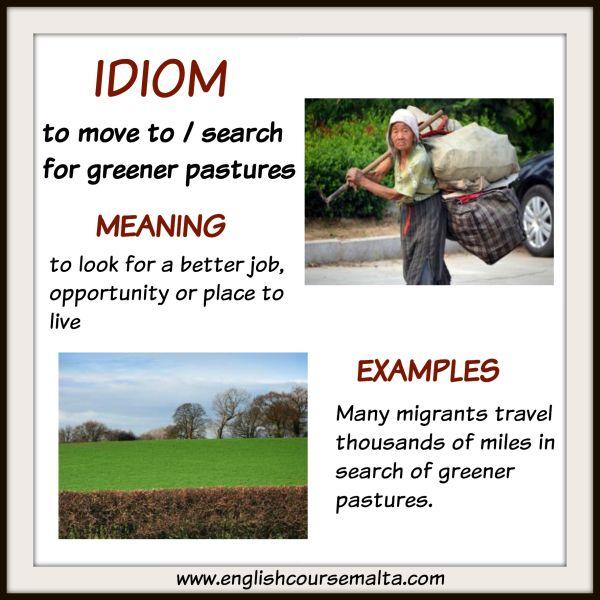This idiomatic expression is used to refer to a change that is for the better. It can be used to refer to a job, a country or even a romantic partnership. Below, you will find some examples of this idiom used in context.
Example:
1. Their incomes fell by 14% last year, and almost 6,000 people left the country for greener pastures.
2. Many of his colleagues have left the country for greener pastures in the West or have taken up another occupation.
3. Rob said, ‘It’s time to leave. Up and away to greener pastures!’.
4. Treat yourself this winter: take a golf break on the Continent. # Drive off to greener pastures. You’ll be glad you did.
5. Despite claims to the contrary to founders of the company are thought to be abandoning it for greener pastures.
The examples have been slightly modified from the idiom as used in the BNC.
Grass is always greener
This proverb is very similar although the meaning is slightly different. When we say, ‘The grass is always greener on the other side of the fence.’, it means that we always feel a little envy or jealousy for things that we don’t have.
Examples in context:
1. In considering the issues of where you are, or where you would like to be, there is also a great tendency to think that the grass is always greener somewhere else.
2. The other man’s grass is always greener and I had the opportunity when I was younger to work abroad. I’ve been in the United States, I’ve been in Europe, but the politics and the way people behave was just the same the world over.
3. Every nation and culture has sayings and proverbs about covetousness. It is often said,’ The grass is always greener on the other side of the fence.’ There is a Scottish proverb which puts its point delightfully:’ The covetous man will never have enough — until his mouth is filled with mould.’ A Hindu proverb is just as vivid:’ If you mention money, even the corpse opens wide its mouth.’ There is a widespread recognition of the reality of covetousness.

